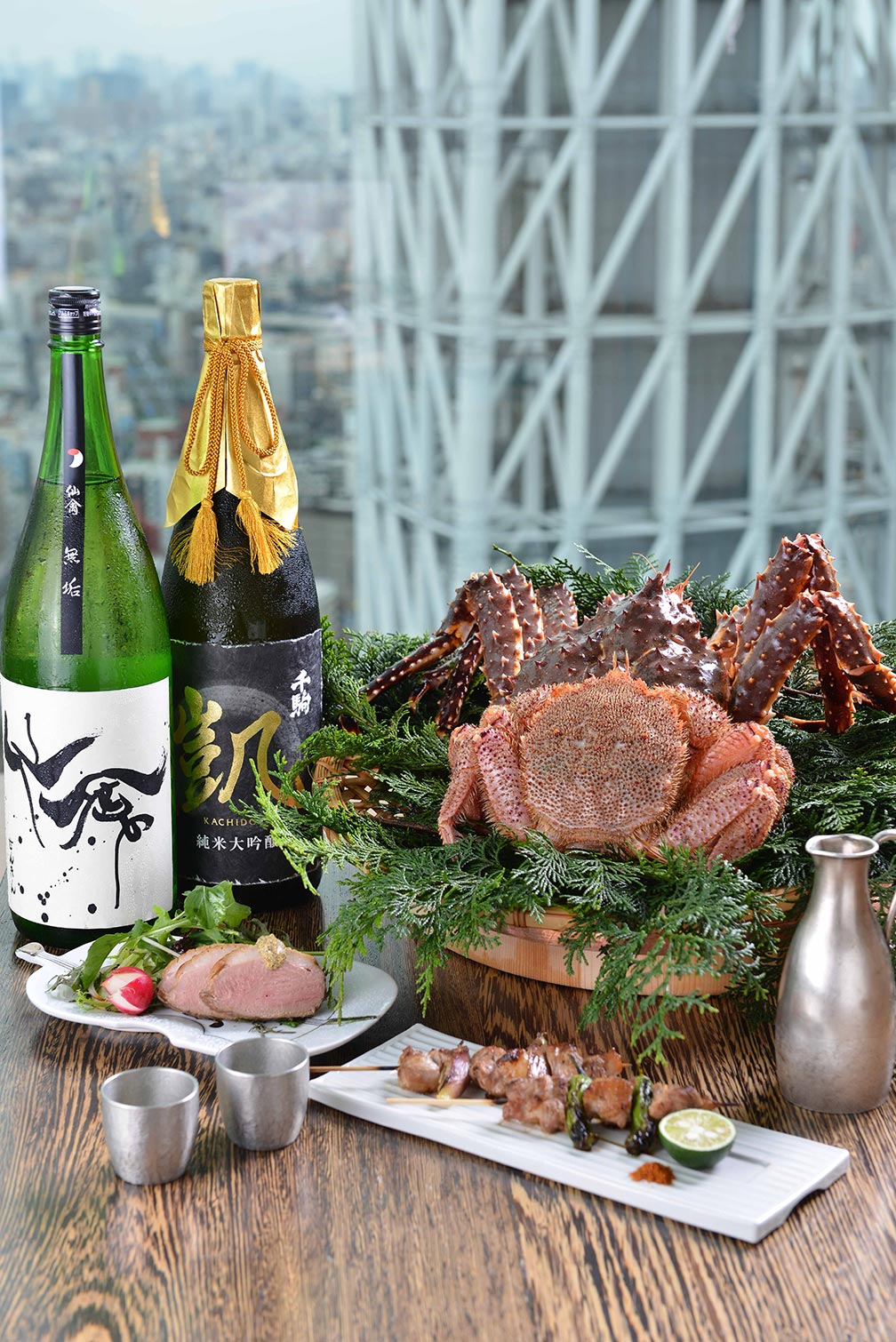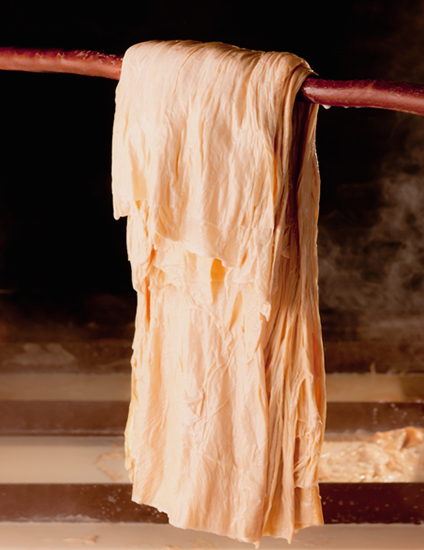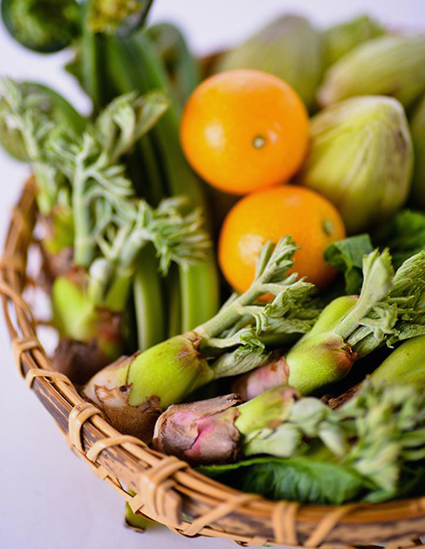
Our Values
A dining room filled with voices and applause raised in congratulations.
A view so stunning it gives your celebration the wow factor it deserves.
At KUNIMI we are delighted to offer a selection of special celebration menus to guarantee satisfaction on your special occasion.

At the Heart of
Hospitality
For tastes and a time you will never forget.
We will do whatever we can to make your occasion as special as it can be: for example, we could open your event with some words of congratulations from the restaurant, or exchange the standard rice course in our course menus for claypot-cooked rice with sea bream. Let us know how we can add the finishing touches.
"Sending diners home with hearts and bellies full"
Our goal is to ensure that you enjoy the time you spend with us at KUNIMI. We serve our diners with the hope that we can make your KUNIMI experience as memorable as possible.

Yuba freshly made
in-house
The yuba (tofu skins) and tofu served at KUNIMI is all freshly made in-house.
We use a variety of soy bean called Mizukuguri, grown in Omihachiman City in Shiga Prefecture, which yields beautifully white beans rich in natural sweetness. Mizukuguri is an ancient variety of soy bean, specially grown for us today by carefully selected farmers.
Yuba (tofu skin) is made by heating soy milk in special receptacles. Over the course of two and a half hours, various kinds of yuba can be obtained, each with its own unique taste, appearance, and texture: hira-yuba (yuba dried into flat sheets), sashimi-yuba (thick sheets intended to be eaten in a way similar to sliced raw fish), and kumiage-yuba (dense, soy milk-rich yuba). The best way to discover the differences between each type of yuba is to try them all yourself.

Eating the Seasons:
Hashiri, Shun, and Nagori
Itadakimasu. A word of thanks, said by diners before a meal, to acknowledge that we are about to transform the power of the ingredients into our own vital force.
Each ingredient has a period during the year when it is at its most powerful. In Japan, we call this period shun. It denotes the time when an ingredient is at its very best.
Hashiri, a term used for first harvest or first catch ingredients, rings in the new food season. Shun is the period when the season's ingredients are at their peak. Finally, nagori marks the end of shun. As well as being celebrated as a marker of the passing season, each ingredient can be enjoyed paired with other seasonal delicacies in other seasonal phases, in combinations known as deaimono. Taking pleasure in seasonal ingredients is a way of showing how we hope to be able to enjoy those same ingredients when they are in season again the following year.


 Recent dishes
Recent dishes

Our Values
A dining room filled with voices and applause raised in congratulations. A view so stunning it gives your celebration the wow factor it deserves. At KUNIMI we are delighted to offer a selection of special celebration menus to guarantee satisfaction on your special occasion.

At the Heart of Hospitality
For tastes and a time you will never forget.
We will do whatever we can to make your occasion as special as it can be: for example, we could open your event with some words of congratulations from the restaurant, or exchange the standard rice course in our course menus for claypot-cooked rice with sea bream. Let us know how we can add the finishing touches.
"Sending diners home with hearts and bellies full"
Our goal is to ensure that you enjoy the time you spend with us at KUNIMI. We serve our diners with the hope that we can make your KUNIMI experience as memorable as possible.

Yuba freshly made in-house
The yuba (tofu skins) and tofu served at KUNIMI is all freshly made in-house.
We use a variety of soy bean called Mizukuguri, grown in Omihachiman City in Shiga Prefecture, which yields beautifully white beans rich in natural sweetness. Mizukuguri is an ancient variety of soy bean, specially grown for us today by carefully selected farmers.
Yuba (tofu skin) is made by heating soy milk in special receptacles. Over the course of two and a half hours, various kinds of yuba can be obtained, each with its own unique taste, appearance, and texture: hira-yuba (yuba dried into flat sheets), sashimi-yuba (thick sheets intended to be eaten in a way similar to sliced raw fish), and kumiage-yuba (dense, soy milk-rich yuba). The best way to discover the differences between each type of yuba is to try them all yourself.

Eating the Seasons: Hashiri, Shun, and Nagori
Itadakimasu. A word of thanks, said by diners before a meal, to acknowledge that we are about to transform the power of the ingredients into our own vital force.
Each ingredient has a period during the year when it is at its most powerful. In Japan, we call this period shun. It denotes the time when an ingredient is at its very best.
Hashiri, a term used for first harvest or first catch ingredients, rings in the new food season. Shun is the period when the season's ingredients are at their peak. Finally, nagori marks the end of shun. As well as being celebrated as a marker of the passing season, each ingredient can be enjoyed paired with other seasonal delicacies in other seasonal phases, in combinations known as deaimono. Taking pleasure in seasonal ingredients is a way of showing how we hope to be able to enjoy those same ingredients when they are in season again the following year.


